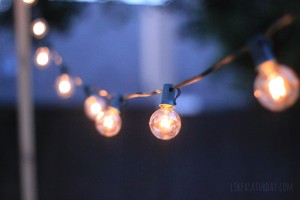I recently saw a movie wherein one of the characters says home isn’t a place, it’s a feeling. I understand this. I feel at home often, in many places. My original and most deeply rooted home is Regina, Saskatchewan, the city I grew up in. I almost wrote my parent’s house, to be more specific, but changed it to encompass the entire city, because my feeling of home when I’m there reaches outside of one building. My feeling of home there has spread all over, into my best friends’ homes, certain streets, businesses, and parks. Since moving away however, I have found myself in many places where I feel at home and many where I feel the complete opposite. That opposite-of-home feeling is an interesting one. Perhaps I’ll start there and make my way along the spectrum, to more accurately explain to you how I experience my sense of home.
You might already know what I mean when I say I want to describe the opposite-of-home feeling. It lives at one extreme end of what I’ll call the ‘home spectrum.’ It’s the feeling I get when I’m in a city I’ve never been in before, lost at night, alone. A gut-sinking, heart-quickening, wide-eyed feeling that washes over me when I realize I am somewhere I shouldn’t be and the only thing I want to do is get away as soon as possible. Moving away from that panicky, fear-based extreme there is a more subtle middle ground. I’ve often heard people make comments like, “I don’t feel at home here” or “this place just doesn’t suit me.” I think comments like these are trying to describe the middle ground, not-quite-at-home feeling. It contains a mix of discomfort, alienation, insecurity and loneliness. Many might argue that big cities help perpetuate this feeling, making it difficult for people to feel at home anywhere outside of the space they reside, if at all. Why? Well, that might be a topic for a separate blog post. Here I want to try and help you understand how I experience a sense of home. So let’s keep moving down the spectrum towards that end.
Home to me is a feeling I experience when all discomfort, isolation, and anxiety have washed away. It contains a mix of familiarity, safety, warmth (not necessarily temperature-wise) and certainty. I have an ongoing, written list of things that I love. It contains things like fireplaces, string lights, coffee brewed by a friend, and the smell of baking bread. Many of the things on that list would help me arrive at this feeling of home. It’s the feeling I get when I arrive at a space and feel one hundred percent welcome, like there is nowhere else that I should be at that moment.
Familiarity and time spent in a place, for me, really help foster a sense of home. However, sometimes time will pass, or my relationship with the people I associate with a space will change, and that sense of home will drift away. I’ve returned to a place after being gone for some time, expecting it to look, smell and feel exactly as I remember, but it doesn’t. Perhaps you’ve experienced this as well? It can be surprising and disappointing. One thing that’s great though, is that with time that feeling of home has always returned somewhere new. Sometimes it’s fleeting, as short as the length of a hug, but it can always be found somewhere, at least in my experience.
My experience of the ‘home spectrum’ varies throughout the day, the month, the year. I might experience both extremes in one afternoon, or spend long stretches in that uncomfortable, not-quite-at-home middle ground. I try to be okay with it all, not constantly seeking that feeling of home, because I believe it’s important to be comfortable with discomfort sometimes. I find it difficult however, because the feeling of home is so pleasant.
What do you think? Is your sense of home something that can be sought out and found, or a feeling you need to patiently wait for? Is it valuable enough to structure your life around, or something that you can learn to live without? For me, it is something tangible that I can find for myself and create for others. Having a sense of home is something I value above most things. I’m curious if it’s the same for you.
Sierra Gale
Thoughts on Assignment 2:2
Works Cited:
Babauta, Leo. “Discomfort Zone: How to Master the Universe.” Web blog post. Zen Habits: Breathe. Zen Habits. 24 Jan. 2013. Web. 8 Feb. 2016.
Fletcher, Thandi and Emily Jackson. “A year ago, Vancouver vowed to become friendlier…so how’s that going?” Metro News. Free Daily News Group Inc. 24 Feb. 2015. Web. 8 Feb. 2016.
